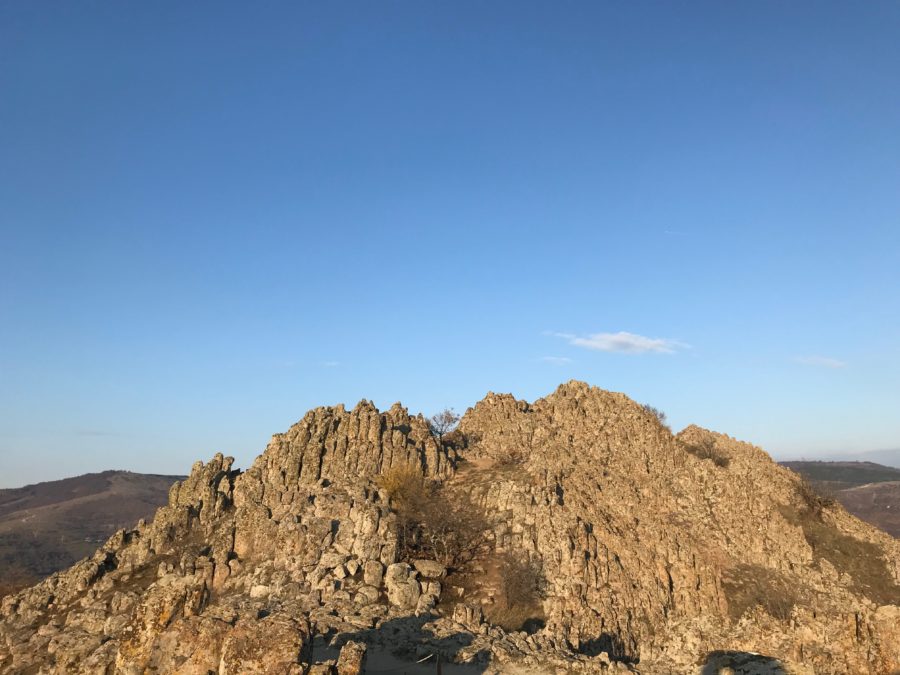This was the title of the presentation I had the pleasure to hear during my visit to Kumanovo this week during an English language class in one of their high schools. The theme of how well we know our world seemed to be the central topic of the hospitality I received during the visit. In a little more than half an hour trip north-east from Skopje you arrive in the town of Kumanovo, as the mayor proudly informed me, home of more than 110 000 people, in a town which this year marks 500 years its existence.
The mayor was my host for the day. He briefed me on the priorities and the challenges of Kumanovo. Youth migration and infrastructure was at the centre of our conversation as it is with many interlocutors I have in North Macedonia. The treasure of the town and its neighbouring places is the mix of people who despite the different backgrounds have lived together for many years. As the mayor pointed out now we need to teach new generations value of diversity, because no matter what community they come from, they share the same home in this town. I couldn’t agree more with this position. If we invest in the young people and their education the more likely it is that we will have generations of young people who are not burdened by prejudice and stereotypes, and are willing to invest in their home town and build domestic development.
I can also boast that we the British know Kumanovo well from the past. During World War 2 the British mission that was helping the partisans landed near Kumanovo and last year in Pelince I attended a warm ceremony which paid respect to those soldiers who lived and trained together. Kumanovo also knows the UK, including through cooperation with Coventry in the United Kingdom and I hope this cooperation will grow stronger in the future.
I got to know the town’s diversity during the visit. Pupils in the high school Pero Nakov were interested in discussing my life here and the differences and similarities with Britain. I saw Kumanovo’s sports investments, the central meeting place of the young people where I met people from civil society organisations who work on connecting communities and encouraging young people to be engaged and involved in decision-making in the society.
My job has a number of privileges but one which I am truly grateful for was being given a tour of Kokino by Jovica Stankovski, now a retired archaeologist from the Kumanovo museum, who led the archaeological expedition for many years at this ancient archeo-astronomical observatory. It was amazing to learn that in prehistoric times people were able to observe the eastern horizon, to mark the rising of the Sun and the Moon. NASA recognised the megalithic observatory Kokino as a significant heritage in its Timeless knowledge project in 2005 along with other ancient observatories such as Stonehenge (UK), Abu Simbel (Egypt), Angkor Wat (Cambodia), Machu Picchu (Peru). The views of the beautiful landscape were amazing from 1013 m though the wind was a little chilly.
After such a visit filled with contents ranging from politics, to business, civil society and cultural heritage, I consider that I am richer for knowing my world more and keen to explore more of North Macedonia as I continue my service here over the next years.

